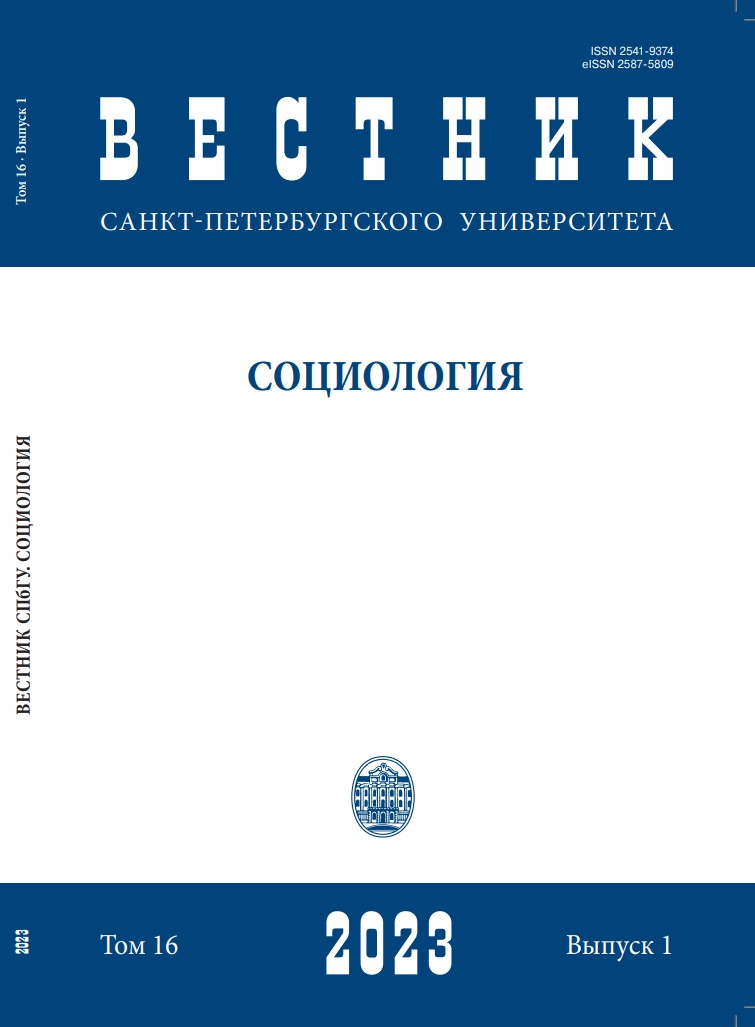Gender attitudes of immigrants in Russia (on the example of concepts of equal educational opportunities)
DOI:
https://doi.org/10.21638/spbu12.2023.104Abstract
Attitudes towards gender equality have significant differences in different countries of the world. These differences are especially felt in migratory movements, when people are faced with different gender regimes. This article is devoted to the study of ideas about gender equality of immigrants from post-Soviet countries in Russia, as well as their comparison with similar attitudes of Russians. The empirical basis of the study was a survey of immigrants from the CIS countries, Ukraine and Georgia (autumn 2020, 700 respondents). Data on Russians is taken from the seventh wave of the World Values Survey (2017, 1810 respondents). Despite the common historical past, the gender attitudes of immigrants and Russians differ — the former more often agree with the thesis that higher education is more important for a boy than for a girl. Predictors of influence on gender attitudes were identified. For Russians, gender, position in the labor market and the number of children turned out to be significant. For immigrants, predictors of patriarchal gender perceptions were older age, lower levels of education, and adherence to the Muslim religion. An extended regression model for immigrants also led to the conclusion that it is not the length of time migrants live in the host country that affects the transformation of their gender attitudes, but the intention to connect their lives with Russia, the formation of an all-Russian identity (a sense of community with the citizens of the Russian Federation). At the same time, the position of Russia as a country that has not overcome the problem of gender inequality (50th place in the world ranking), coupled with the patriarchal ideas of some Russians, may allow immigrants not to rush to revise their own gender attitudes.
Keywords:
immigrants, cultural integration, gender inequality, gender attitudes, patriarchal values
Downloads
References
Downloads
Published
How to Cite
Issue
Section
License
Articles of "Vestnik of Saint Petersburg University. Sociology" are open access distributed under the terms of the License Agreement with Saint Petersburg State University, which permits to the authors unrestricted distribution and self-archiving free of charge.




